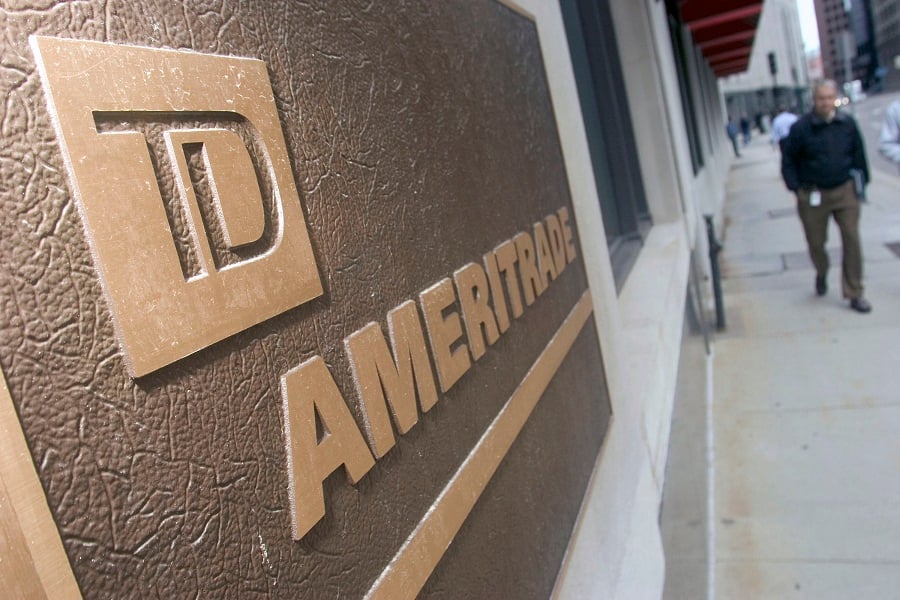Commission-free ETF trading appears to be the
trend that isn't going away, but TD Ameritrade is the latest company to acknowledge it will not lead in the race to the bottom.
"We're not going to lead [on cutting commissions], but we need to prepare for that downward trend," said TD Ameritrade Holding Corp. CEO Tim Hockey during a Tuesday earnings call with market analysts.
Asked about the impact of the July 2nd
announcement by The Vanguard Group to remove commissions on more than 1,800 exchange-traded funds, Mr. Hockey acknowledged the pressure on TD to stay competitive, but he also put the trend in context.
Of the more than 300 ETFs that TD offers commission-free, Mr. Hockey said, "five of those ETFs hold 20% of the assets."
"There does get to a point where it gets to be too much," he added.
The sentiment was strikingly like the
message presented last week during the Charles Schwab Corp. earnings call.
Asked about the pressure to expand its list of commission-free ETFs beyond 265 in the wake on the Vanguard announcement, Schwab president and chief executive Walt Bettinger responded that "there is a certain level where enough is enough."
To that, however, Mr. Bettinger added that the list of no-transaction-fee ETFs offered by Schwab will likely be expanded to a "measurable extent."
At Fidelity Investments, which offers access to 95 commission-free access, a spokeswoman confirmed "we're constantly evaluating our offering to ensure we're meeting the needs of our clients."
Considering the bar set by Vanguard, which beginning next month removes commissions on virtually the entire ETF universe except for leveraged and inverse strategies, the "enough is enough" response might be all the rest of the industry can do.
Todd Rosenbluth, director and ETF and mutual fund research at CFRA, doesn't believe the trend will get to the point where ETF commissions are eliminated entirely, but he does think the trend has some room to run.
"Investors are very cost conscious when choosing ETFs, and the brokerage firms are trying to gather assets and encourage usage of ETFs," he said. "By eliminating the hurdle of commissions, it's likely to spur usage."
According to
Schwab's ETF investor study, published last month, commission-free trading ranked as "extremely important" by 48% of consumers responding to the survey.
The report ranked free ETF trades in the middle of the pack among a list of consumer priorities, but ahead of things like brand name, Morningstar rating and ETF assets.
The Schwab survey of 1,500 ETF investors further showed a growing appeal of commission-free trading.
Of those respondents who ranked free trades as the "most important" criteria, 31% said they would switch brokerage firms for free ETF trading.
That percentage is up from 23% last year and 17% in 2016.
Even while the market might be pushing toward greater access to commission-free ETFs, Mr. Rosenbluth said the brokerage platforms have also run the numbers and will continue to balance commissions against commission-free trades.
"I don't think commissions are completely going away," he said. "From the business perspective, it makes sense to have a select number of commission-free ETFs that are exclusive while the brokerage firm still earns commissions from widely-traded ETFs."







